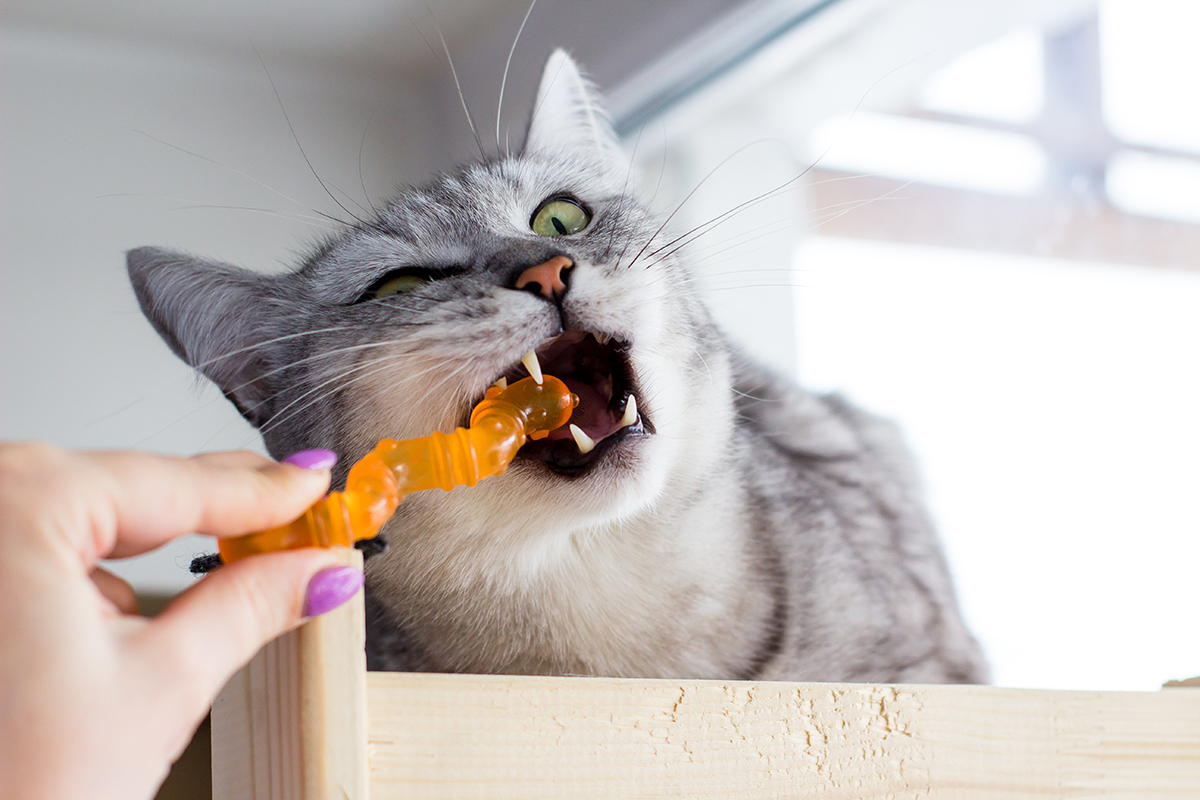
How to stop a biting cat?
Cats, and kittens especially, love to involve biting with playtime. This is a common characteristic for predators because it serves as practice for when they are ready to start hunting for themselves. For domesticated cats however, this behaviour can be unwanted and problematic for their human companions.
Kittens will be especially prone to biting and chewing when they are teething, much like human babies. Their milk teeth will come through when they are around 3 weeks old, well before most owners have met their new kittens. Kitten owners will usually notice that their kittens are experiencing discomfort when their adult teeth come through, which will start at 9 weeks, but they may not get all their adult teeth until they are 6 months old. To aid this, ensure they have lots of soft things to chew on, and do not pull toys away from their mouth when they are chewing, as this may cause them discomfort.
Do make sure your cats and kittens have enough toys designed to be bitten and chewed upon. Encourage them to bite these, instead of you, by giving them a treat when they bite the toy. When your cat does bite you during play, stop playing with them and walk away. They will soon associate biting human fingers with the end of playtime and will learn to stop. It is really important that you are consistent with this, so be sure to explain to all family members and visitors that they must also ignore your cat if they bite.
Cats will also bite as an expression of aggression when they feel threatened, or to assert dominance. This is usually accompanied by an arched posture, hissing and scratching. This type of biting behaviour is usually observed in outdoor cats who regularly need to defend their territory, or cats that have spent time in shelters. Again, just walk away and ignore your cat to show them that this behaviour is unacceptable.
Some cats will use biting as a communication tool when they want your attention. If they bite your toes and then try to play with you, just ignore them. If you start playing with them in this situation, they will learn that biting gets their own way and they will continue to do it.
Cats can also bite to communicate that they do not like something, or they are being overstimulated. This behaviour is often experienced when stroking your cat. It may seem out of the blue and unprovoked, but look closely and your cats body language will soon tell you that they are fed up with being stroked. This is your cue to stop stroking before your cat needs to bite you to tell you to stop.
As always with cats, be sure to positively reenforce good behaviour and do not punish bad behaviour.